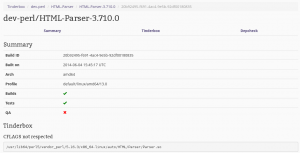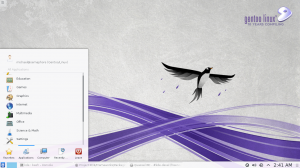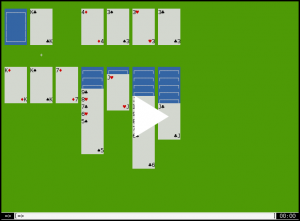Background
For those that are not already aware, KDE’s release structure has evolved. The familiar all-in-one release of KDE SC 4 has been split into three distinct components, each with their own release cycles – KDE Frameworks 5, KDE Plasma 5, and KDE Applications 5.
This means there’s no such thing as KDE 5!
KDE Frameworks 5
KDE Frameworks 5 is a collection of libraries upon which Plasma and Applications are built. Each framework is distinct in terms of functionality, allowing consumers to depend on smaller individual libraries. This has driven adoption in other Qt-based projects such as LXQt as they no longer have to worry about “pulling in KDE”.
We ship the latest version of KDE Frameworks 5 in the main tree, and plan to target it for stabilisation shortly.
KDE Plasma 5
KDE Plasma 5 is the next generation of the Plasma desktop environment. While some might not consider it as mature as Plasma 4, it is in a good state for general use and is shipped as stable by a number of other distributions.
We ship the latest version of KDE Plasma 5 in the main tree, and would expect to target it for stabilisation within a few months.
KDE Applications 5
KDE Applications 5 consists of the remaining applications and supporting libraries. Porting is gradual process, with each new major release containing more KF5-based and fewer KDE 4-based packages.
Unfortunately, current Applications releases are not entirely coherent – some packages have features that require unreleased dependencies, and some cannot be installed at the same time as others. This situation is expected to improve in future releases as porting efforts progress.
Because of this, it’s not possible to ship KDE Applications in its entirety. Rather, we are in the process of cherry-picking known-good packages into the main tree. We have not discussed any stabilisation plan yet.
Migrating
As Frameworks are just libraries, they are automatically pulled in as required by consuming packages, and no user intervention is required.
To upgrade to Plasma 5, please follow the upgrade guide. Unfortunately it’s not possible to have both Plasma 4 and Plasma 5 installed at the same time, due to an upstream design decision.
Applications appear in the tree as a regular version bump, so will upgrade automatically.
Ongoing KDE 4 support
Plasma 4 has reached end-of-life upstream, and no further releases are expected. As per usual, we will keep it for a reasonable time before removing it completely.
As each Applications upgrade should be invisible, there’s less need to retain old versions. It is likely that the existing policy of removing old shortly after stabilisation will continue.
What is this 15.08.0 stuff, or, why is it upgrading to KDE 5?
As described above, Applications are now released separately from Plasma, following a yy.mm.xx versioning scheme. This means that, regardless of whether they are KDE 4 or KF5-based, they will work correctly in both Plasma 4 and Plasma 5, or any other desktop environment.
It is the natural upgrade path, and there is no longer a “special relationship” between Plasma and Applications the way there was in KDE SC 4.
Feedback
As always, feedback is appreciated – especially during major transitions like this. Sharing your experience will help improve it for the next person, and substantial improvements have already been made made thanks to the contributions of early testers.
Feel free to file a bug, send a mail, or drop by #gentoo-kde for a chat any time. Thanks for flying Gentoo KDE!



Recent Comments